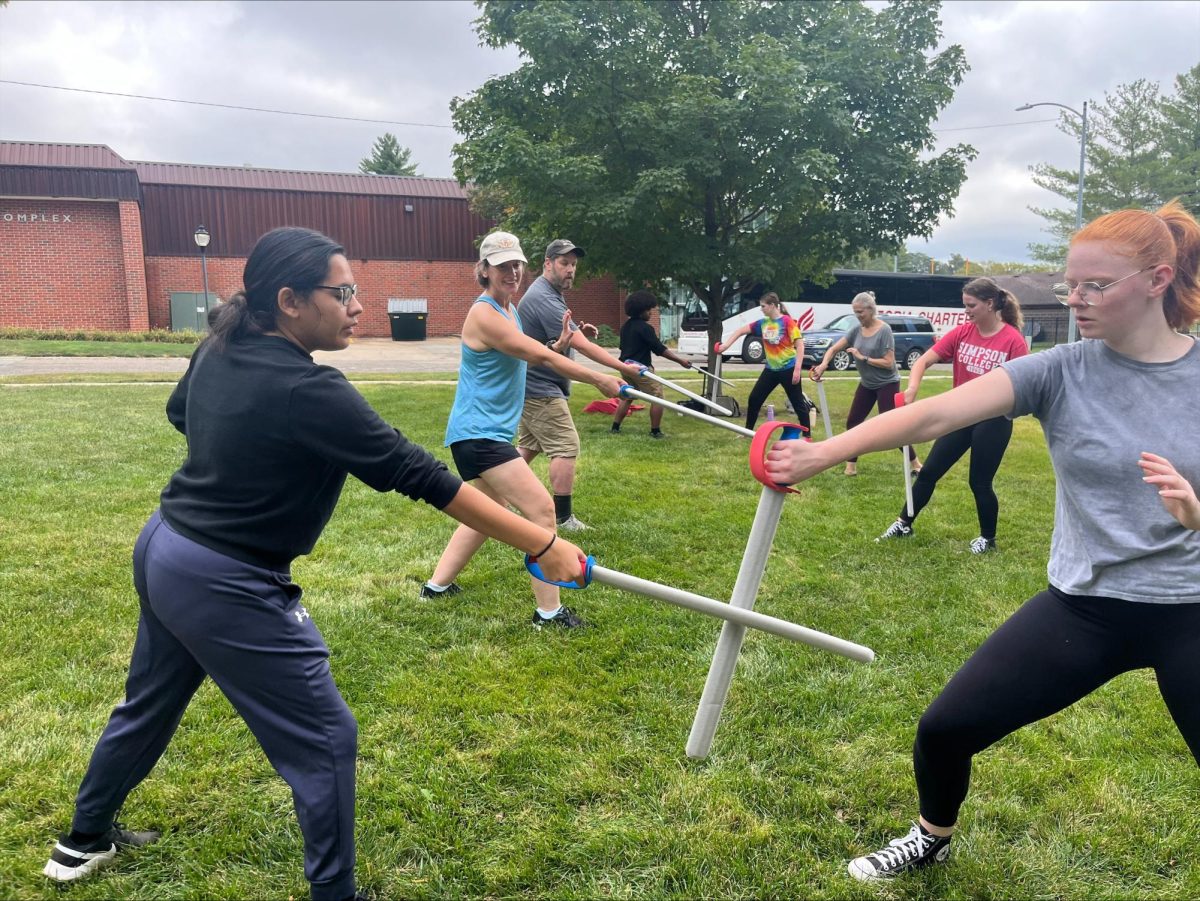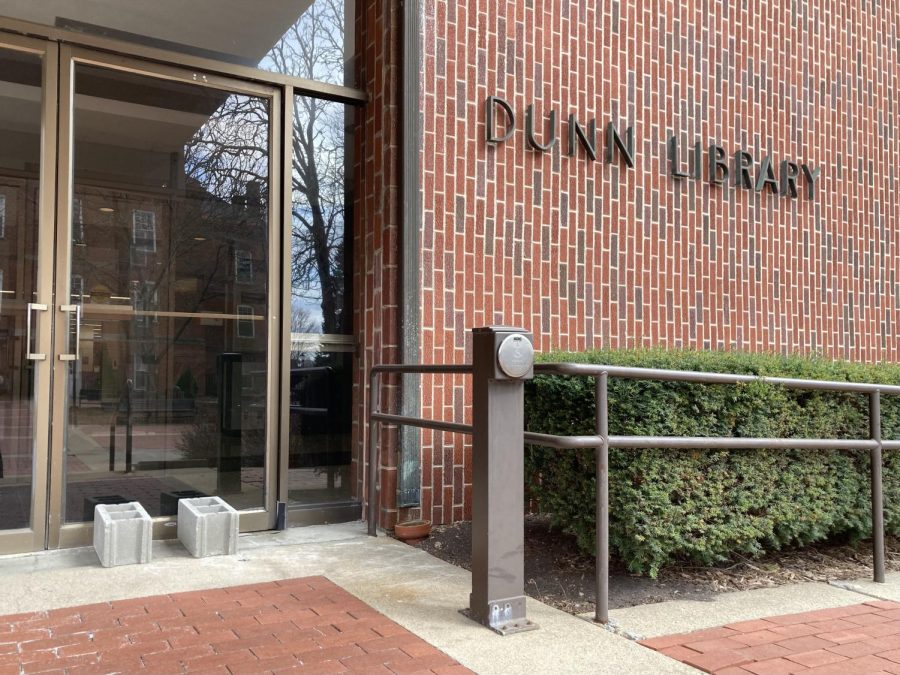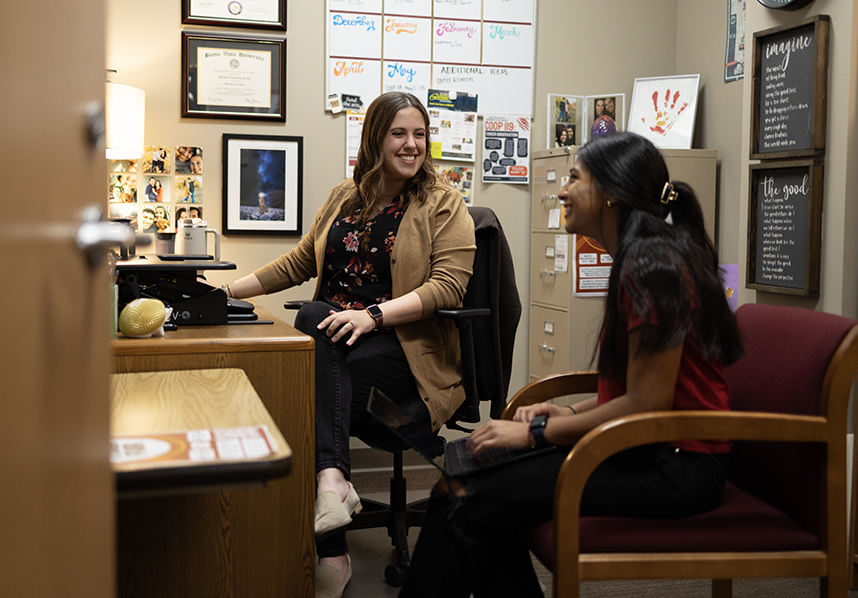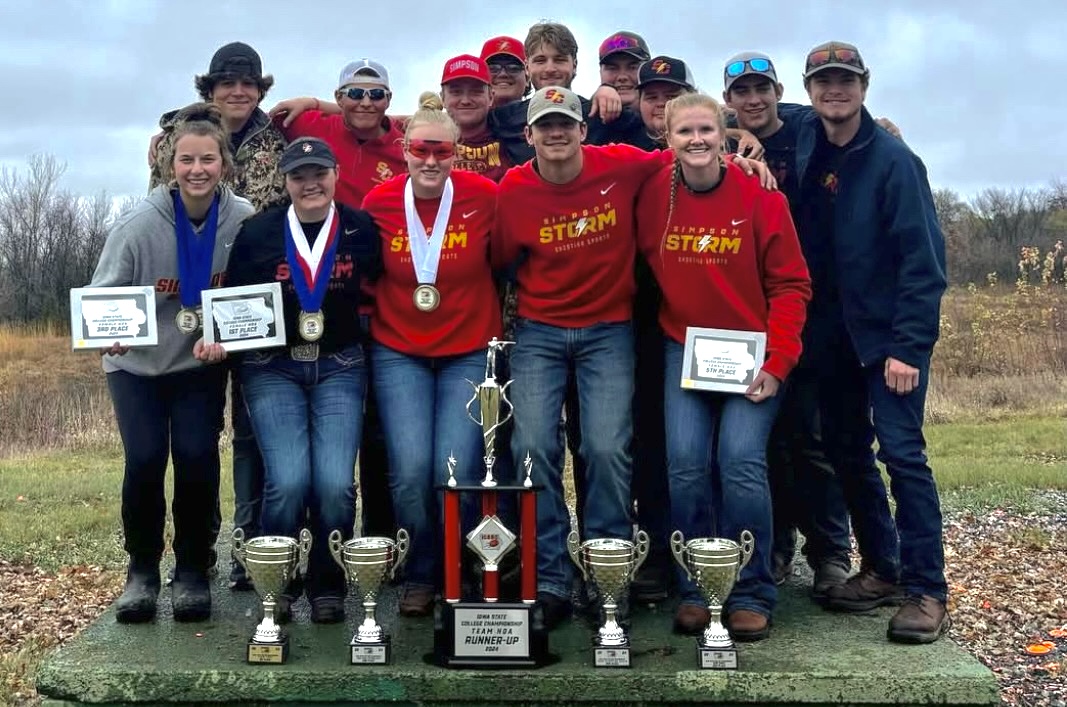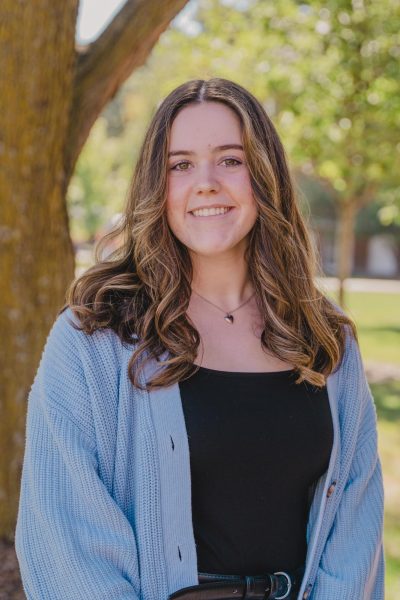Simpson Productions held a sword combat workshop led by Jenn Allton, a stage combat and intimacy director who will be directing in the upcoming play “The Moors.”
The workshop focused on developing foundational stage combat skills, specifically single-sword techniques, and attracted a various group of participants.
Allton led the basic single-sword skills workshop attended by seven participants, including actors from “The Moors,” the director, stage manager, box office manager and Professor Nick Proctor.
“I’m an actor combatant, and that means that I’ve had 40 hours of training in a specific weapon with qualified teachers, and were adjudicated and passed,” Allton said. “I’ve also had adjudication for separate weapons.”
In two hours, the attendees learned everything from how to hold the sword, the parts of the sword and commands for each move. Foam Nerf swords were used, ensuring that the training remained safe but practical.
Allton lead them through exercises designed to ensure safety while enhancing their performance skills. They did combat drills and routines, learning about safety and angles. It required full-body engagement with stances and guarding, and the actors switched positions to get a feel of each circumstance.
Her passion for stage combat started in Allton’s undergraduate years when a workshop first sparked her interest. Since then, she has earned a BA in Theatre and an MFA in Theatre Performance, continually honing her expertise in the field.
Director of “The Moors,” Jennifer Nostrala, brought Allton on board after previously working together in the early 2000s. The two had crossed paths when Allton went to graduate school in Nebraska with Tom Woldt, the then-chair of Simpson’s theater department. Woldt had reached out to Allton to choreograph fight scenes for “Henry VIII” at Simpson, and they’ve stayed in touch ever since. Previously, Allton worked at St. Catherine’s as a stage combat adjunct professor doing combat for “Richard III” and worked in the theatre scene of Chicago.
The emphasis on safety is central to Allton’s work, particularly in stage combat and intimacy direction, which involves choreographing potentially dangerous scenes while empowering actors to set boundaries.
“It was unusual to have a woman who choreographed violence, and I always made sure that the priority was keeping the actors safe because I had been in plays where it was not safe and people got hurt,” Allton said. “I got hurt, and there’s just no reason for it because there are safe ways to do these things.”
Stage combat and intimacy direction are crucial because they help actors understand their boundaries and ensure their safety while telling a compelling story.
“Knowing that my actors will stay safe and that they have the tools to stay safe, that’s, really the foundation of why I do this,” Allton said.
Nostrala echoed this sentiment, highlighting the importance of bringing in professionals with specialized skill sets to enrich the production process.
“We want to give people a lot of different experiences, so we bring people in who have skill sets we don’t,” Nostrala said.
Building on the importance of training, Allton emphasized that stage combat requires as much rehearsal and precision as any other performance aspect, due to the potential risks involved.
“As much as people rehearse choreography in their dance, at least as much stage combat needs to happen, because there’s the potential for harm,” Allton said. “There’s the potential for hurting another actor, and it absolutely has to be spot on.”
One of the workshop attendees, Maxwell Wearmouth-Gweah, saw the session as both an opportunity to develop his acting skills and a fun learning experience.
“Getting used to switching between the advances and retreats and then the steps was a bit difficult if anything,” Wearmouth-Gweah said. “Getting that down and then remembering the hand-eye coordination to be able to get the spacing right as well.”
Allton spoke about how stage combat is not only a great skill for theatre but also for Renaissance fairs and Shakespeare festivals where knowledge of combat can open up performance opportunities and get people in the door.
“I want to get more into it because I’m into Ren fairs and stuff like that. I see the battles that happen there, so I’m into stage combat and being kind of goofy with things that are more or less violent in some sort of way,” Wearmouth-Gweah said.
Maddy Gunzenhauser, another participant, who is part of the cast of “The Moors,” expressed her surprise at how engaging the workshop was.
“It was more fun than I expected,” Gunzenhauser said. “I thought it was going to be a little more drills, but I liked getting to actually switch around and do actual stuff with it.”
While there are no swords in the upcoming play, it was an opportunity for members to lengthen their repertoire and try something new.
“I liked the end where we worked on all the combo stuff, and putting all the things we learned together into a small, little performance type of deal,” Gunzenhauser said.
Be sure to catch the production of “The Moors,” By Jen Silverman Oct. 10-12 to see the combat training in action.



